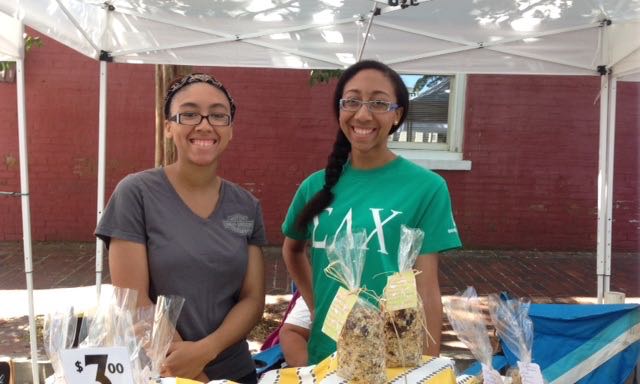 There are hundreds of women who inspire us at Food Tank. They are entrepreneurs, stewards of the land, business owners, researchers, farmers, and innovators, who are the backbone of the world’s food systems.
There are hundreds of women who inspire us at Food Tank. They are entrepreneurs, stewards of the land, business owners, researchers, farmers, and innovators, who are the backbone of the world’s food systems.
In fact, on average, women represent 43 percent of the world's agricultural labor force and 47 percent of the global fisheries labor force, according to the U.N. Food and Agriculture Organization (FAO) and the World Bank. These hard-working women produce more than half of the world’s food despite being less than half of the labor force, and women account for 60 to 80 percent of food production in developing countries. And if the world’s women farmers had the same access to resources as men, 150 million people could be lifted out of poverty, according to the FAO. A crop yield gap of about 20-30 percent between male and female farmers is largely due to differential access to resources and inputs. Women fill this gap by working up to 13 hours per week longer than men in agriculture.
 There are hundreds of women who inspire us at Food Tank. They are entrepreneurs, stewards of the land, business owners, researchers, farmers, and innovators, who are the backbone of the world’s food systems.
There are hundreds of women who inspire us at Food Tank. They are entrepreneurs, stewards of the land, business owners, researchers, farmers, and innovators, who are the backbone of the world’s food systems.
In fact, on average, women represent 43 percent of the world's agricultural labor force and 47 percent of the global fisheries labor force, according to the U.N. Food and Agriculture Organization (FAO) and the World Bank. These hard-working women produce more than half of the world’s food despite being less than half of the labor force, and women account for 60 to 80 percent of food production in developing countries. And if the world’s women farmers had the same access to resources as men, 150 million people could be lifted out of poverty, according to the FAO. A crop yield gap of about 20-30 percent between male and female farmers is largely due to differential access to resources and inputs. Women fill this gap by working up to 13 hours per week longer than men in agriculture.
“Women are the priority. The majority of smallholder farmers in Africa are women and, in urban areas, you’re primarily looking at women-led households. So we can’t solve hunger if we don’t have gender-sensitive programming that addresses access to opportunities for women, whether it’s through education or tools for cooking, like solar-powered stoves,” says Ertharin Cousin, executive director of the U.N. World Food Programme.
As the impacts of climate change become more evident, the world will need to invest in more effective strategies to alleviate hunger and poverty. And that means standing with our mothers, grandmothers, and sisters who are farming and giving women farmers the resources they need to nourish both people and the planet.
Read the full news on Food Tank's website

